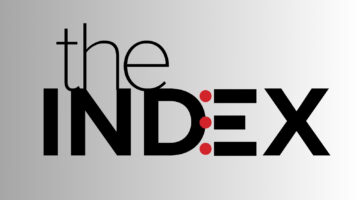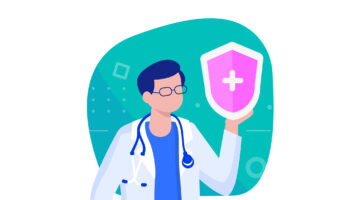This post was first published on Wellthcare.
This week I’ve despaired at how the needs of the few always seem to trump those of the many, especially when it comes to health. It made me feel nervous — if not plain over-awed — about the challenge ahead of us. Luckily, two courageous leaders have restored my hope.
My despair arose in the National Museum of Singapore where I learnt about Dr Lim Boon Keng. In 1896 Dr Keng criticised the squalid conditions that many migrant workers lived in, seeing it as the source of their many ills. One of the four conditions that he specifically listed was the prolific consumption of — and addiction to — opium. The problem with addressing the issue, however, was the government at the time derived about 50% of its revenues from the trade of opium; banning it was impossible.
Money and power are intertwined. The government at the time (the few) clearly needed opium irrespective of the health consequences to the people (the many). The needs of the few out-trumped those of the many, the consequence being ill-health.
The health care industry is one of the most lucrative in the world. This helps to sustain its power. As we all know, though, it’s falsely named — it’s sickness care, not health care. To sustain its power it needs sickness. Sickness is its opium. Given that health care contributes only 10-20% to what we call health, are the needs of the few out-trumping those of the many causing more ill-health?
I’ll leave that question with you but what it says to me is that we cannot look to the health care industry to help us create health. We need some kind of parallel system.
Before I continue, let me offer two clarifications. First of all, health care — its professions and its industries — will always be needed. As I said, it contributes about 10-20% to our health and so it plays a vital role. Secondly, although looking to the health care industry for how to create health seems to make no sense that’s not to say that individuals within health care cannot step out and play a vital role in working out what health creation is (in many ways it’s what I am doing).

Take the 2025 Benefit Consultant Sentiment Index Survey
If you’re helping clients navigate big changes—from the surge in GLP-1 demand to AI to the growing pressure to demonstrate ROI – we want your thoughts.
So what is this parallel system?
That’s what we need to work out. The good news is that we’re not alone in this type of quest.
In economics more and more academics are realising that the tools of their trade are not fit to tackle today’s big issues. They failed to predict the global financial crisis of 2007-2008, with the ensuing — and ongoing — global recession and European sovereign debt crisis. In 2009 they created the Institute For New Economic Thinking, which works through “research funding, community building, and spreading the word about the need for change”. At their annual event they propose and debate new thinking. In essence they’re laying the intellectual foundations for a new, parallel system that may prove robust enough to act as a counter-weight to the current —and insufficient — system.
Health needs an “Institute For New Health Thinking”. It needs a safe space for people to propose and debate new thinking on creating health. But who will lead this? Given the aforementioned tension between health creation and health care we cannot look to the latter for its leaders.
We can almost always learn valuable lessons from the past so let’s head back to the National Museum of Singapore.
The British, the colonial rulers of Singapore, had a rather hands-off approach to its migrant workers (as long as they kept taking opium), which left the communities to self organise. The organisations created were called “secret societies” by the British, although the Chinese name was less sinister reflecting the former’s paranoia about their possible mafia-like influence. Indeed, these organisations/societies were associated with extortion and vice but they also played a role in establishing Singapore’s social fabric including supporting new migrants.
If health care was more hands off would communities self organise to establish a new social fabric designed to create health? Call me a romantic but I’d like to think the answer is yes. We just need to create the right conditions for people to try. That’s what I think a new “Institute For New Health Thinking” should do – create the right conditions.
Let me be clear, though; I don’t want to advocate a new think tank. At Wellthcare we believe we learn by doing, and hence “do ourselves into new ways of thinking” (see our Manifesto).
FAQ: Do you know all the answers?
Answer: No…We are inviting you to experiment with us, not to implement some clearly defined step-by-step program that the experts have prepared for you
For me, any “Institute For New Health Thinking” would learn from Esther, Rick and their five communities. It would take this empirical knowledge, organise and package it, spread the word and catalyse other communities to experiment with becoming well, however these other communities decide to define it. For me, Esther and Rick are courageous leaders laying the foundations of a parallel system that may prove robust enough to act as a counter-weight — or perhaps complement — to the current okay-but-insufficient health care system.
We at Wellthcare are actively thinking about what an “Institute For New Health Thinking” might look like and function. If you have ideas, please do get in touch.
Pritpal S. Tamber (@pstamber) is the Founder of the Creating Health Collaborative, an international collective aiming to understand health beyond the lens of health care. A physician by training, he has worked in academic publishing and clinical improvement, and his clients include established organizations like the NEJM Group, TEDMED, and WHO, as well as startups such as My Clinical Outcomes, Thicket, and Raremark.
This post appears through the MedCity Influencers program. Anyone can publish their perspective on business and innovation in healthcare on MedCity News through MedCity Influencers. Click here to find out how.








